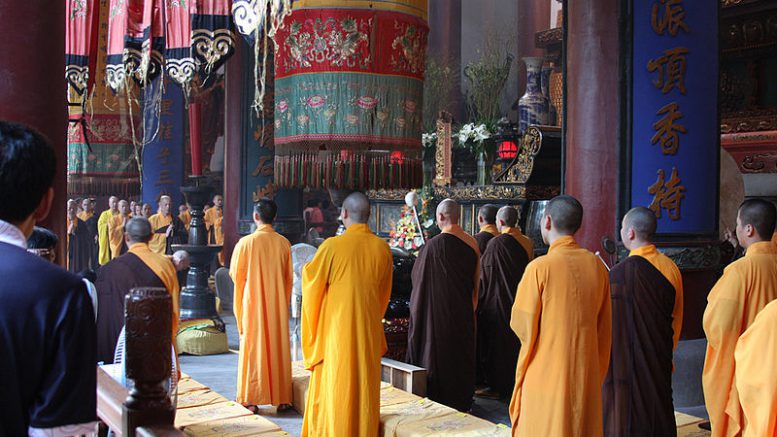One of the most deeply-rooted myths conveyed by the western official culture, we can say by the westerners intellectuals, is that in eastern cultures and religious performances there are no feelings of holiness. As you can often read, people say that spiritual expressions, as well as religious ones, are a kind of secular expressions, a sort of civil religions without God. When we talk about God we intend talking about the One God-One Truth attitude of our culture.
So people in the West see asian religions as expressions without (one single) god. Expressions in which, we assume, is concerned a supernatural entity. Seems to be a debate between monotheism and polytheism. And, why not?, we can see some attachments with the concern of the cultural differentialism as well as essentialism that innervate so many westerner intellectuals.
But the problem can’t be this one. Of course, those expressions are nor monotheistic neither a topic of fanatism. And in China, exepting for some few christians and muslims, syncretism between confucianism, taoism and buddhism is the mainstream among people, even if they are monotheists. Anyway, the problem is: is it true there is no sense of holiness in the eastern religions? Or: is it possible that in one of the fundamental expressions of human being there is nothing they can consider holy, inviolable, untouchable?
Our answer is no, of course. The experience of holiness is everywhere in China. It is among human relationships, respectful and helpful behaviours, deference. This is working whether you are a chinese as well as you are a foreigner, who has to be treated as a guest, while in other countries or cultures they are not. But, the main issue against the theory of a lack of holiness in those cultures is: are you saying eastern people, above all if not monotheists, are not able to feel the holiness? Are they devoid of this specific feature as human beings? Therefore, if you are talking about a human capability, our answer is definitively no: they are able to feel, and live, holiness and be concerned about sacred matters.
We could add that it is like in the debate among observants and seculars. Seculars, as well as observants, are able to feel the faith toward something like politics, ideas or human beings. We can say, hence, observants have no exclusive access to the faith and, for induction, to what people call holiness. We can say, again, westerners have no privileged or exclusive access to the holiness or the sacred.


Be the first to comment on "Chinese people and the feeling of holiness."